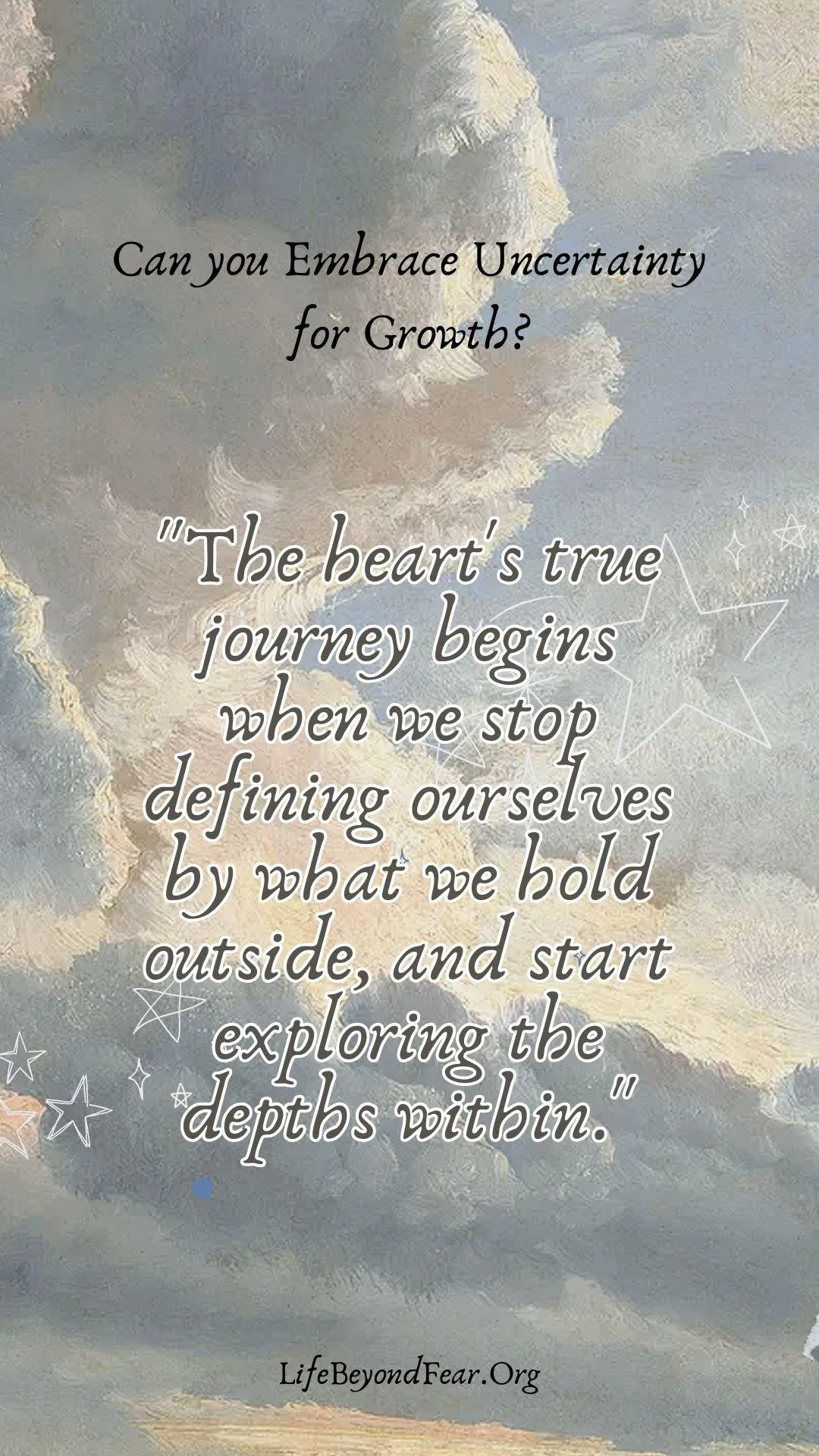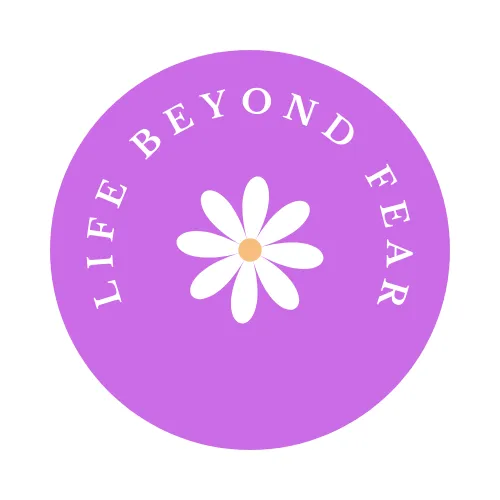There’s a whole world out there
See Newest Blogs

Embracing Uncertainty
Embracing Uncertainty: The Illusion of Attachments and Personal Growth
Introduction:
Imagine a life where love flows freely without expecting anything in return.
Such a life might seem elusive but is deeply rooted in ancient wisdom and modern psychological insights.
This article dives into the illusion of attachments, how grief serves as a transformative force, and how to navigate life beyond the labels we place on our experiences.

Understanding Attachments:
Attachments are the emotional bonds we form with people, objects, and even ideals. At first glance, attachments might seem natural, contributing to our sense of security and identity. However, when these attachments become crutches, they can hinder personal growth and perpetuate suffering.
Philosophical and spiritual teachings often depict attachments as illusions—temporary constructs that distract us from our true nature. For instance, the main theme of "A Course In Miracles" is to detach from idols, or replacements for the divine source. By holding onto these idols, we set ourselves up for pain when they inevitably change or disappear.
Grief: The Great Teacher:
When we lose something deeply cherished, the grief that follows can feel like an unbearable void. Yet, grief is also a powerful instructor, peeling away layers of illusion to reveal the raw, unfiltered truth of existence.
The loss of attachments compels us to confront our fears and insecurities. As our foundations seem to crumble, we are granted a profound opportunity to rebuild from a place of true understanding. Here, grief is not just sorrow but a catalyst for growth, pushing us to unearth and integrate long-standing abandonment issues, thus leading to deeper healing.
Navigating the Abyss of Uncertainty:
Facing uncertainty head-on is one of life's greatest challenges. The need to 'know' can become so overwhelming that we latch onto anything that promises a semblance of stability. This behaviour, while understandable, often leads us away from genuine self-discovery.
To transcend this, we must embrace uncertainty, fostering a mindset that views every experience as an opportunity for growth rather than a threat to our happiness. This doesn't mean we should abandon all attachments immediately but gradually shift our perspective, seeing them as fluid rather than fixed.
Living in Love Without Expectations:
The concept of living in love without expectations is beautifully liberating. It invites us to connect more profoundly with the world, free from the constraints of our ego. When we love without demanding anything in return, we tap into an infinite source of joy and peace that no external attachment can provide.
By practising mindfulness and self-awareness, we can begin to recognise when we are forming unhealthy attachments. This awareness empowers us to let go, opening our hearts to the ever-present love that transcends any idol or illusion.
Conclusion:
In essence, attachments are illusions that offer temporary comfort while distorting our perception of reality. By understanding and embracing the lessons of grief, we are equipped to navigate the uncertainty that life presents with grace and resilience.
Living in love without expectations doesn't mean detachment from life itself but a deeper connection with our true source. The more we explore this realm, the more we realise that true happiness and peace aren't found in clinging to illusions but in letting go and embracing the boundless potential of the unknown.
Reflection
How does the concept of living without expectations resonate with your personal experiences so far?

Copyright ©LifeBeyondFear.Org. All Rights Reserved.
Unlock the secrets to improving relationships at work, at home, and most importantly, with yourself. Discover the transformative power of meaningful connections and self-understanding.
